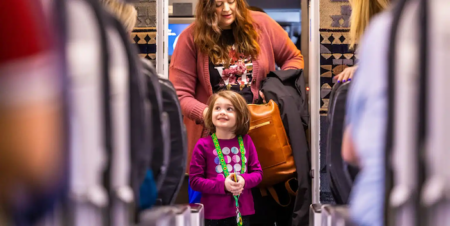Everyone who works with food has a responsibility for safeguarding the health of consumers and colleagues whilst ensuring that the food they prepare, serve or sell is perfectly safe to eat. With ever?changing legislation, processes and high staff turnover, it is clear that comprehensive and regular food safety training is vital for maintaining standards.
With spring/fall just around the corner and the increase in passenger numbers this typically brings, there will be an increase in the number of inflight meals that have to be prepared, so now is the perfect time to review and renew all areas of food hygiene, food safety practices and related staff training.
The last 12 months may have seen changes in your operating practices or even the addition of new product lines or menus. You may have also installed new equipment, taken on new staff or promoted existing staff to supervisory roles. Training should never be ignored, so this is an ideal time to review your processes, see whether they are up to date and ensure all your staff have received appropriate training and understand their responsibilities.
All food business operators are required by law to ensure that food handlers receive the appropriate supervision and instruction when it comes to food safety. This applies to all staff, regardless of their contractual status and includes full time, part time and temporary workers. Airlines also have a responsibility to ensure their staff members receive appropriate training relating to the inflight transportation, heating and serving of food. All training or instruction given to ground-based food preparation staff should ensure that they have sufficient knowledge and competence to handle food safely, with an appropriate level of supervision.
Managers and supervisors should receive more advanced training which builds on the subject matter targeted at operative workers, as well as focusing on the specific responsibilities associated with supervising and managing a safe food business. The training should reflect an understanding of the key principles of effective food safety management procedures, and how they are incorporated into working practices, as well as what the key processes are and how they are implemented within your business.
When it comes to training the appropriate knowledge and competencies, these can be obtained in a number of ways including on-the job training, self study through expertly produced guidance materials, attending a formal training course, or through dissemination of prior experience.
When developing a training program for your food preparation-related business it must be specific to your organization and employees, the processes you use and products you produce, as well as those of the airline that will ultimately be serving them to its passengers. The program should be developed by trainers who are sufficiently knowledgeable about the relevant food risks that may arise within the business and it should be developed to be appropriate on all levels.
Whatever approach is taken you should ensure that the key training messages are clearly understood and all relevant topics are covered. This might mean considering potential language barriers or the literacy skills of your staff when they are taking part in training sessions covering theoretical subjects. Training programs also need to include changes in legislation and the impact this can have on individuals and the business.
Airline catering businesses should consider new employees, understand what to do when individuals already hold food safety qualifications, and know what additional information is needed to meet the client’s specific requirements. It is important to deliver training on a regular, ongoing basis rather than simply do it once or twice a year.
When recruiting new staff who already hold nationally recognized food safety qualifications, the legal imperative should be that supervision and training is commensurate with their work activity. Never assume new starters possess the relevant skills and knowledge required to do the job they were employed to do; you should always undertake some form of review or assessment process. You may then ask new team members to sit an assessment and, where appropriate, you could then stipulate or provide additional training, thereby guaranteeing that every employee receives the food safety training you require to safely operate within your business.
Recognizing where gaps in existing knowledge may exist and constantly keeping abreast of ever?changing legislation can be an onerous task. It can be beneficial for a business to bring in a food safety and training specialist as they will know all current legislation and how these regulations should be applied to your operation. Being independent and seeing your operation through a fresh set of eyes also means that they can identify areas where simple changes could make significant benefits to your day-to-day operation.
Reviewing and implementing ongoing training programs helps businesses become efficient and ensures that customers are not put at risk of any food safety violations which could potentially jeopardize your entire operation. Further advice and assistance is available from your EHO, or an independent food safety and health & safety organization like STS.





